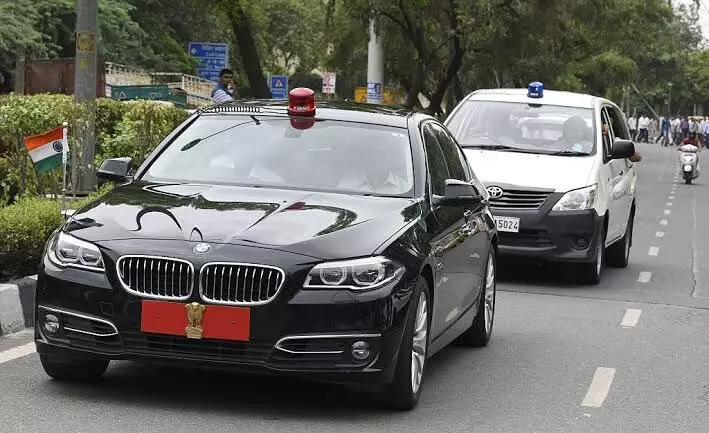Hospital visits to school admissions: Survey reveals widespread VIP culture in Telangana
5,755 participants offer a snapshot of how VIP culture affects citizens in Telangana according to a survey by LocalCircles
By Anoushka Caroline Williams
Telangana: Representation Image
Hyderabad: A new survey by LocalCircles has revealed that VIP culture remains a deeply entrenched issue across India.
Over 45,000 responses were elicited from citizens across 362 districts in different states including Telangana. The findings revealed the widespread nature of VIP privileges that impact daily life in various public domains.
Key Insights from the Telangana Survey
The Telangana-specific responses, with 5,755 participants, offer a snapshot of how VIP culture affects citizens locally. The survey explored multiple aspects, including commuting, healthcare, religious places, and government offices.
1. Perceptions of VIP Culture Over Time
• 52% of respondents from Telangana stated that VIP culture is “intact and very much there.”
• 25% felt it has increased over the past five years, with 14% saying it has risen significantly.
• Only 22% believed there has been any reduction, indicating minimal progress in combating this practice.
2. VIP Culture During Commutes and Travel
• A staggering 51% of respondents observed VIP culture across all travel modes, including roads, tolls, trains, stations, airports, and flights.
• Specifically, 21% reported encountering VIP culture on roads and toll plazas, while 10% noted it across roads, tolls, airports, and flights.
3. Public Spaces Beyond Travel
• 57% of participants experienced VIP culture in government offices, public/private events, and religious places.
• 14% observed it in government offices and religious places, while 10% saw it at religious places and public/private events.
4. Hospitals: VIP Privileges in Healthcare
• 34% reported experiencing VIP culture at hospitals in the last year.
• 5% claimed to have witnessed it in all their hospital visits, while 29% observed it in at least one visit.
• However, 61% did not notice VIP culture during their hospital visits.
5. Other Inappropriate Activities by VIPs
• 19% said VIPs in their areas encroach on public property.
• 23% pointed to VIPs influencing government transfers and postings through bribes.
• 17% cited misuse of power for school admissions and government approvals.
Persistent Challenges in Telangana and Beyond
The survey paints a grim picture of how VIP culture disproportionately affects ordinary citizens, leading to delays and discrimination in accessing services. These privileges extend beyond inconveniences to violations such as encroachment and corruption.
VIP Culture on the National Stage
The Telangana findings align with national trends revealed in the survey:
• 64% of Indians believe VIP culture has persisted over the past three years.
• 83% of those visiting government offices said they are ridden with VIP culture.
• 91% of commuters observed VIP privileges on roads and toll plazas.
• Misuse of VIP status in temples, hospitals, and public events remains a pressing concern.
Impact of VIP Culture on Equality and Rights
Instances like the recent hospital fire in Jhansi, where VIP preparations took precedence over aiding grieving families, spotlight the dire consequences of this culture.
Similarly, preferential access at religious sites, as challenged in a PIL in the Supreme Court, raises questions about equality and dignity under Articles 14 and 21 of the Constitution.
What Citizens Want
Participants have suggested actionable measures, including:
• Removing VIP tags at public entrances.
• Ending preferential darshan at temples.
• Abolishing VIP passes for public events.
• Penalizing delays caused by VIP movements.
While eliminating VIP culture may be difficult, the survey underscores the urgent need for systemic reforms to curb its adverse effects.
Survey Demographics
The Telangana segment of the survey had a balanced representation:
• 65% men and 35% women.
• 48% were from Tier 1 cities, 24% from Tier 2, and 28% from Tier 3 and rural areas.